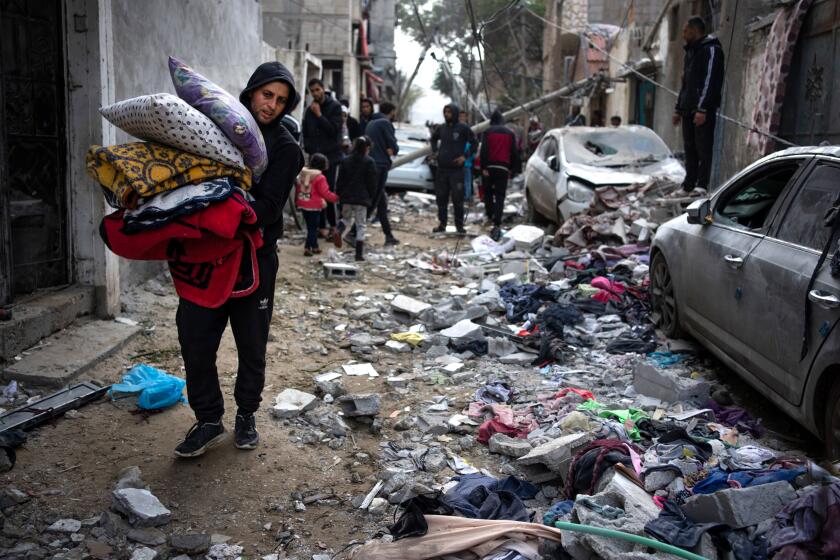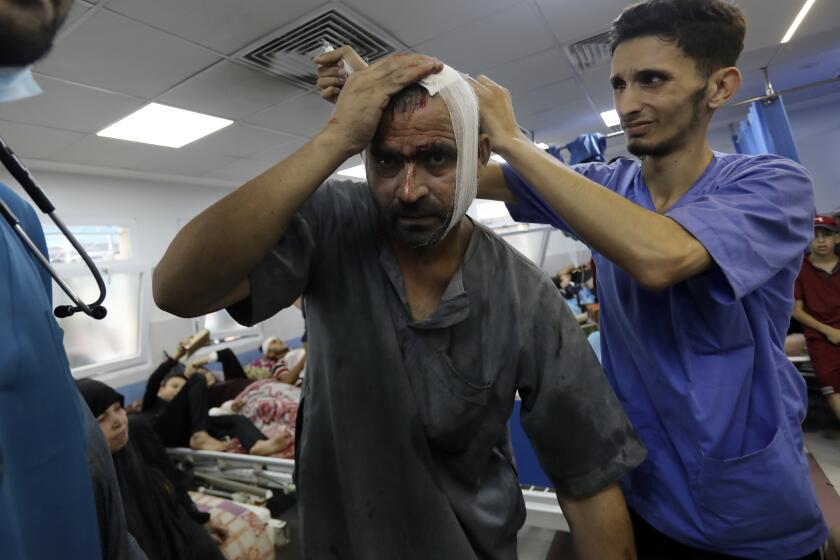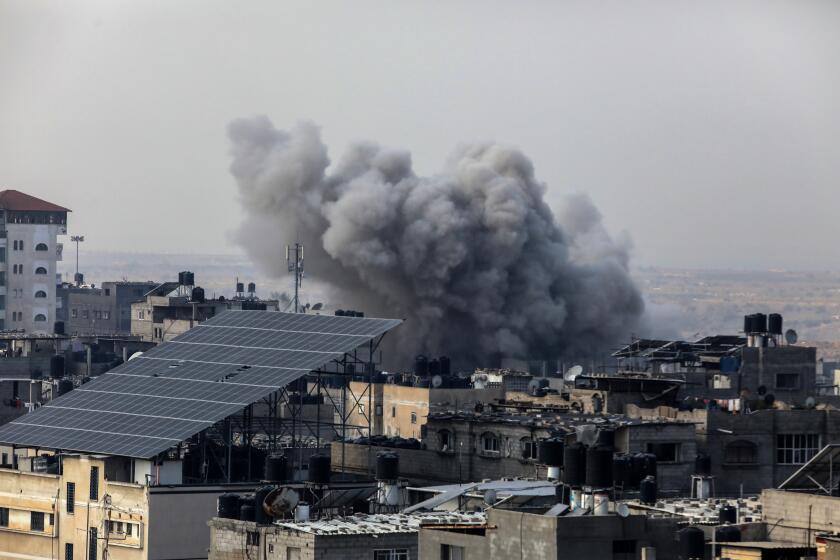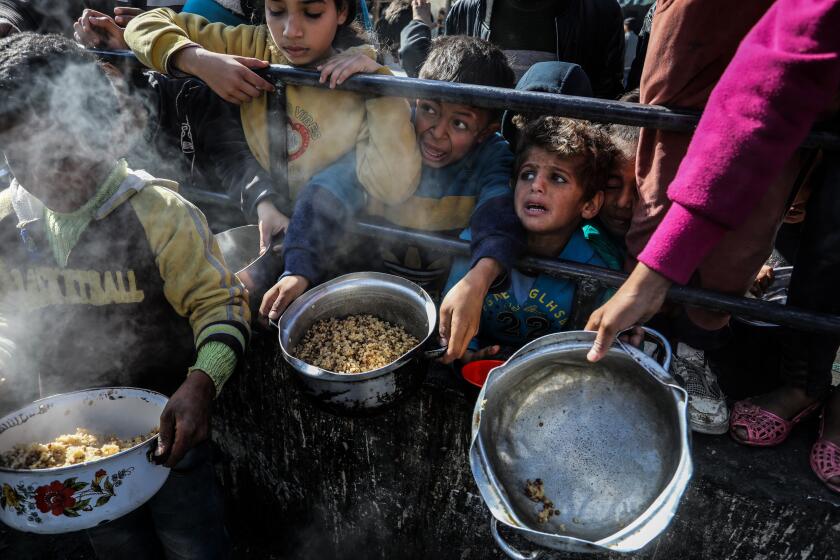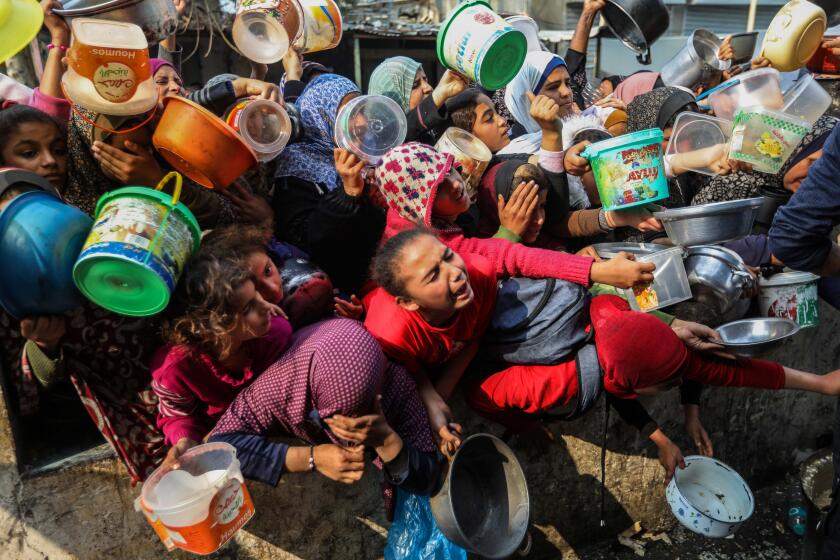Editorial: The humanitarian aid Gaza needs most is a cease-fire
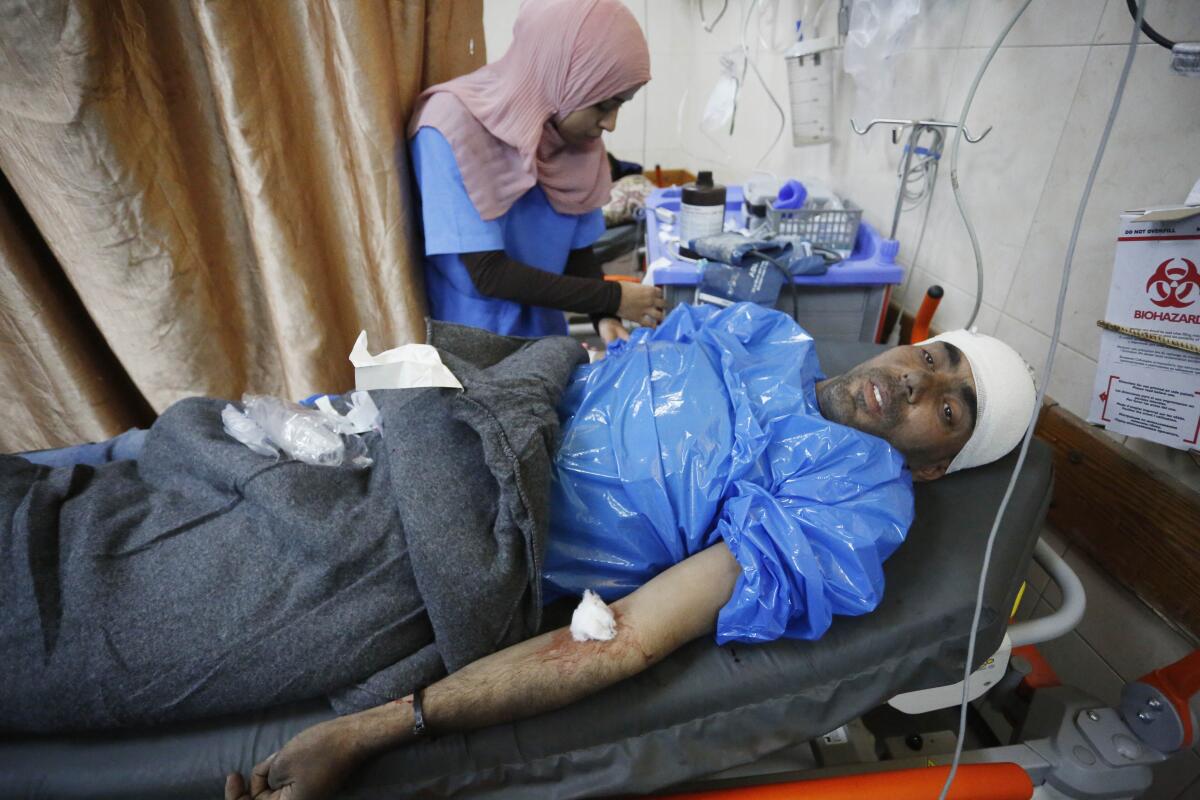
- Share via
In Gaza, famine is imminent.
To get urgently needed food, clean water, temporary sanitation facilities and medical supplies to more than 2 million Palestinians, President Biden ordered construction of a floating dock. Building it will take weeks.
In the interim, aid trickles into the narrow strip of land between southwestern Israel and the Mediterranean. A Spanish-supplied ship from Cyprus offloaded rice and flour at a makeshift jetty formed from some of the ample rubble left by weeks of Israeli bombing. Some trucks are permitted to enter through “Gate 96,” a hole in the barrier that seals off Gaza from Israel. Some food is dropped by parachute. So far it is insufficient to slow the steady advance of severe hunger.
The U.S. must say ‘no’ to arming and funding Gaza’s destruction, use its muscle to bring Israel to the table, rescue Gaza’s people and stop the slaughter.
In the northern part of Gaza, largely destroyed by the Israeli air and ground assault that followed the Oct. 7 Hamas attack that killed 1,200 Israelis, people are desperate. Some have reportedly raided the few aid trucks that get in. Others were killed and seriously injured by air-dropped cargo when parachutes failed to open. Emergency aid is hardly a substitute for peace.
In the southernmost part of Gaza, in and around Rafah, hundreds of thousands who fled the Israeli strikes in the north now wait in terror —and hunger — for a threatened final assault.
Israel’s quest to root out Hamas has inflicted indiscriminate death and destruction on Gaza and Palestinian civilians. Humanitarian pauses are no longer enough.
The dock, welcome though it may be, is an almost perverse footnote to Biden administration policy that supplies and supports the Israeli destruction at the heart of the crisis.
By demanding an immediate and lasting cease-fire, thus permitting the return of regular supply convoys, the U.S. would save many more lives and stave off far more hunger than any number of docks and airdrops.
The Middle East boils down to a contest between a desire to exterminate the enemy and a desire to live in peace. The U.S. should weigh in on the side of peace.
But the best the administration could muster Monday was an abstention in a United Nations Security Council cease-fire resolution. It represented a modest shift in policy (although Biden administration officials denied it) after three U.S. vetoes of previous resolutions.
For the record:
2:17 p.m. March 26, 2024An earlier version of this editorial referred to Senate Majority Leader Charles E. Schumer as the Senate minority leader.
Nearly six months into the Israel-Hamas war, more U.S. officials, including dozens of members of Congress, are belatedly demanding an end to the Gaza horror. Or, as in the case of Senate Majority Leader Charles E. Schumer (D-N.Y.), a change in the Israeli government.
As a surgeon, I volunteered at a Gaza hospital. The conditions were unthinkable. With a ground offensive in Rafah, people have nowhere to go.
Such calls should not be mistaken as support for the religio-fascist Hamas regime, whose brutal attack began this latest tragedy, and which continues to hold more than 100 hostages.
It is high time for Biden to acknowledge that there are at least three parties in the Gaza disaster. Israel of course is one. Hamas is another.
Palestinians just trying to avoid starvation are a third.
Ramadan is usually a festive holy month for my Muslim family. But as Palestinians living in the U.S., we will be grieving as we fast while Israel’s war in Gaza continues.
It may be convenient for the government of Israeli Prime Minister Benjamin Netanyahu to pretend that Hamas combatants and innocent Palestinian civilians are a single adversary, and that bombing and starving Palestinians is putting pressure on Hamas to release the hostages.
But Hamas likely has little regard for the innocents and is only too willing to permit their slaughter to further its own power.
The deaths of more than 32,000 Palestinians, according to the Gaza Health Ministry, and the grief and misery of the survivors is not merely tragic, but gratuitous. Whatever clout the U.S. retains in the region should be used to end this madness. It is a fourth party to the conflict. As is the rest of the world.
And then build the dock.
More to Read
A cure for the common opinion
Get thought-provoking perspectives with our weekly newsletter.
You may occasionally receive promotional content from the Los Angeles Times.
